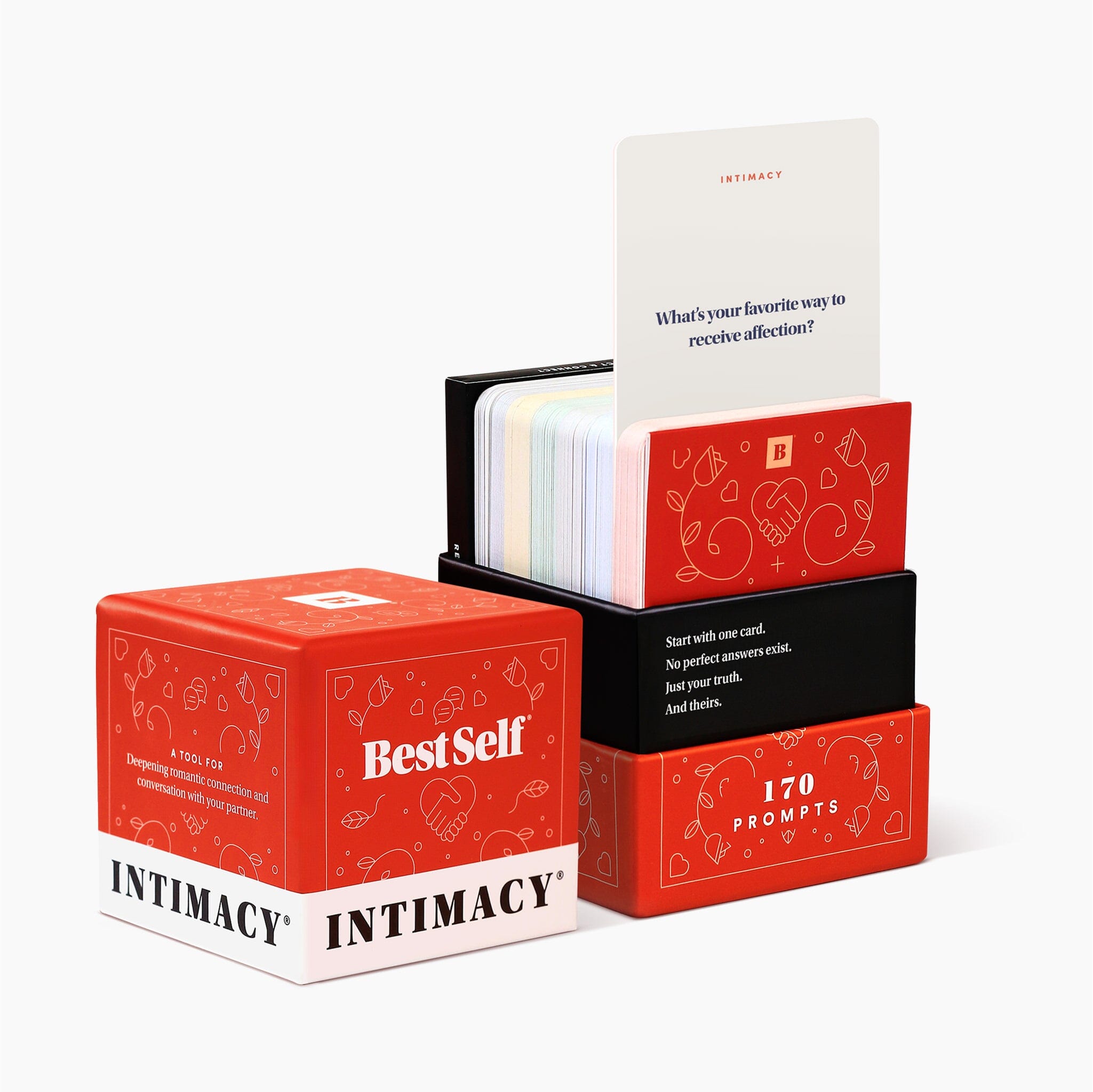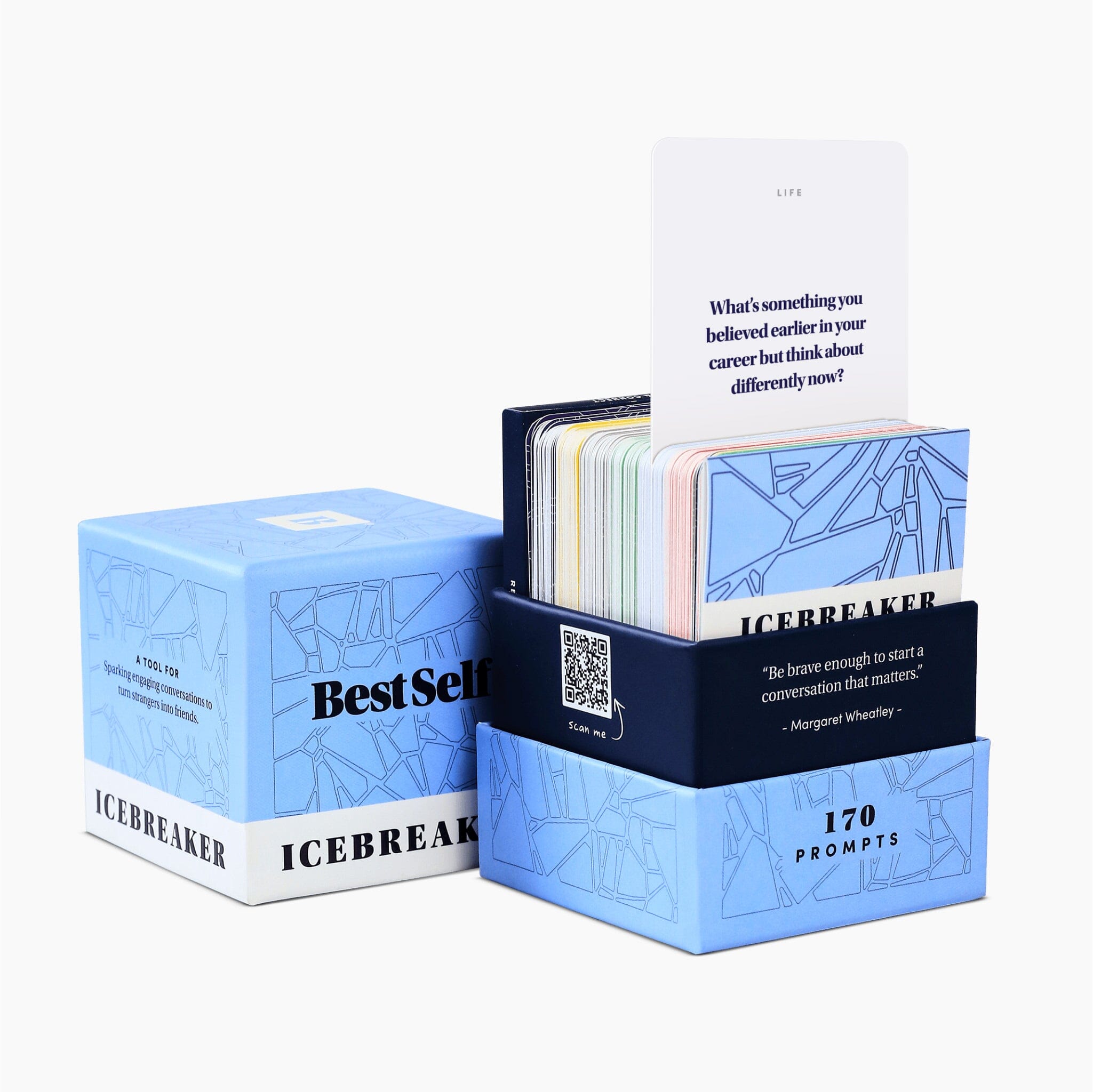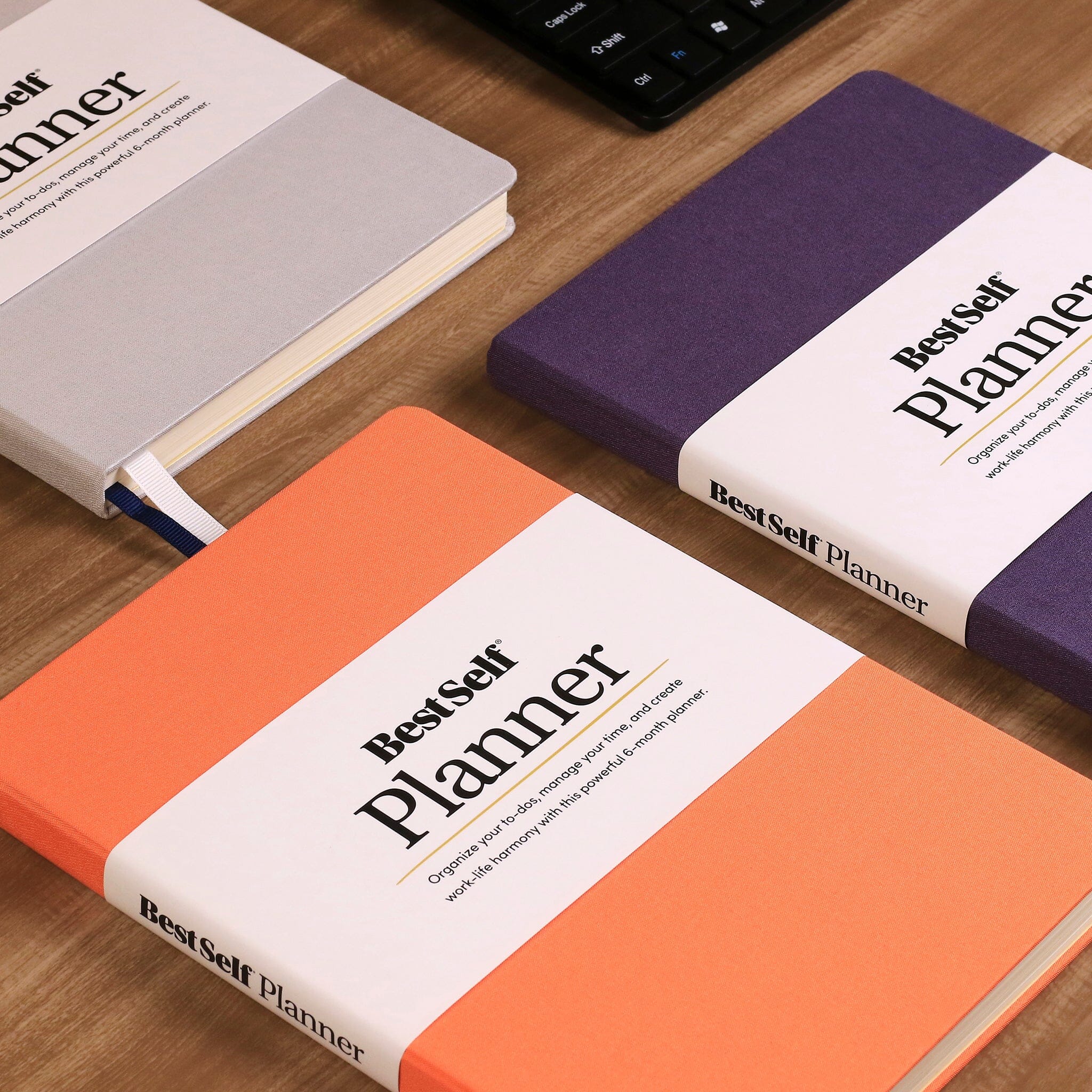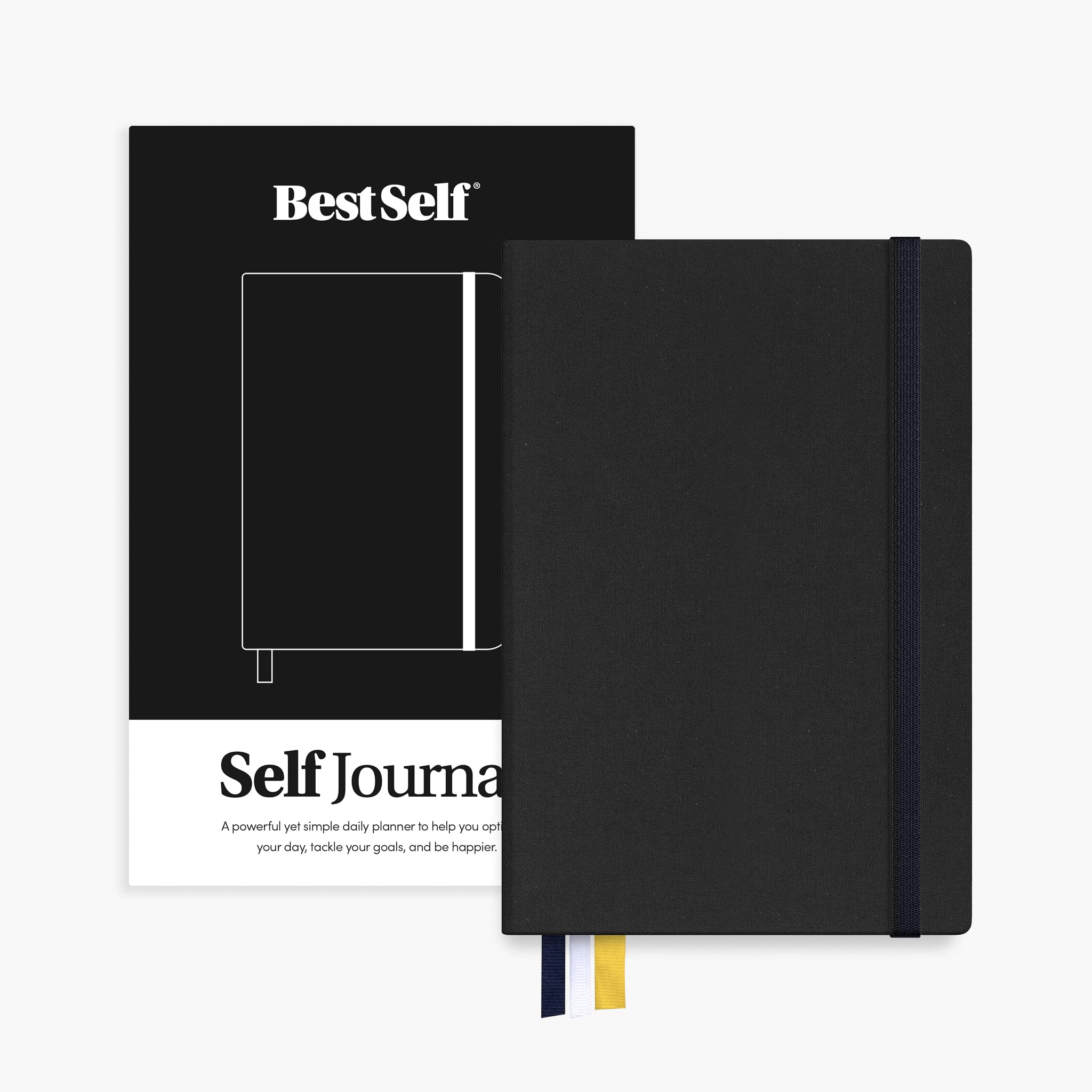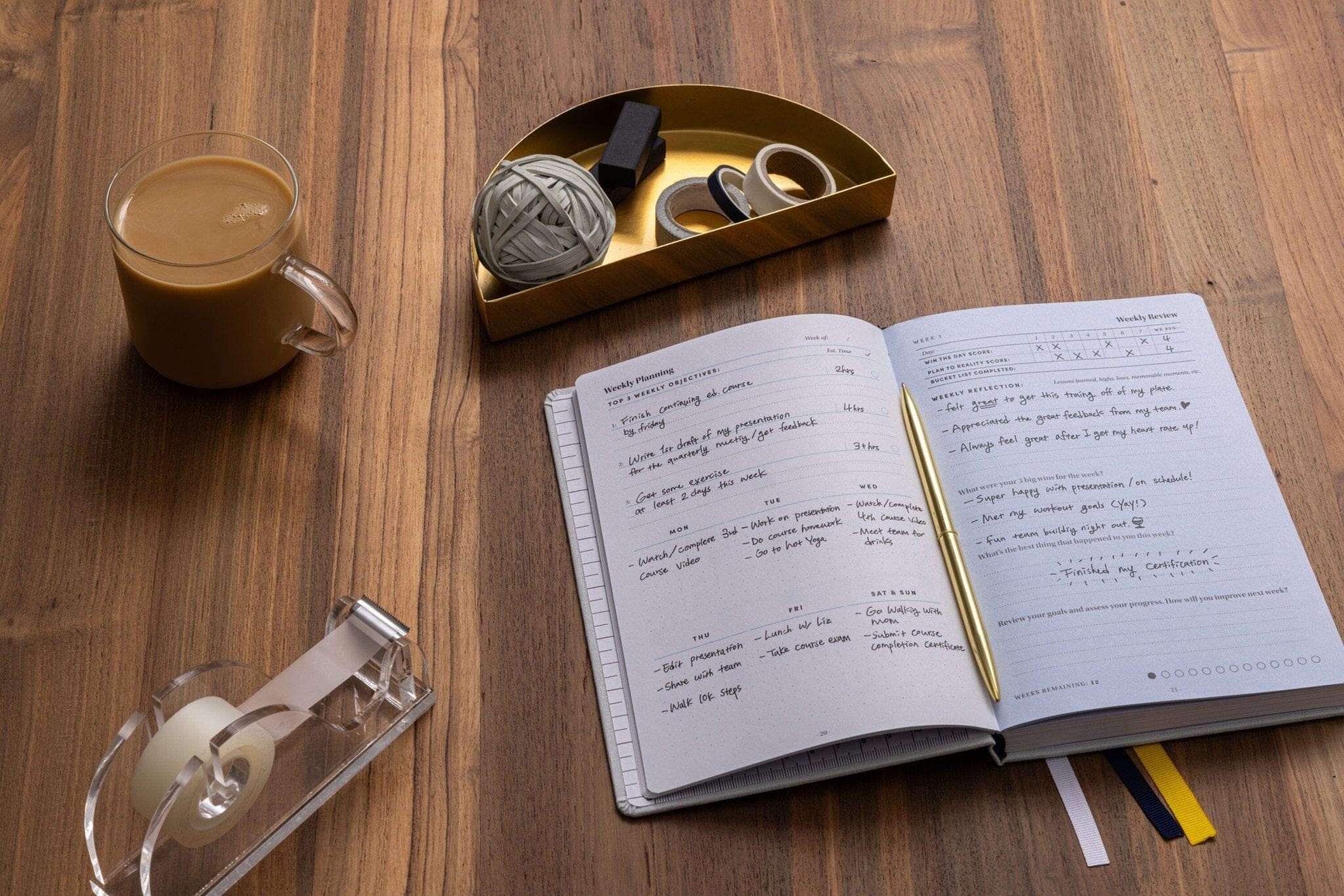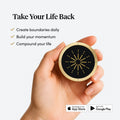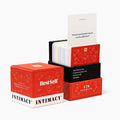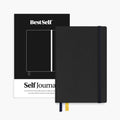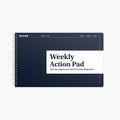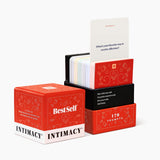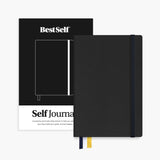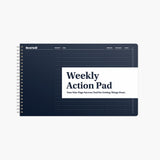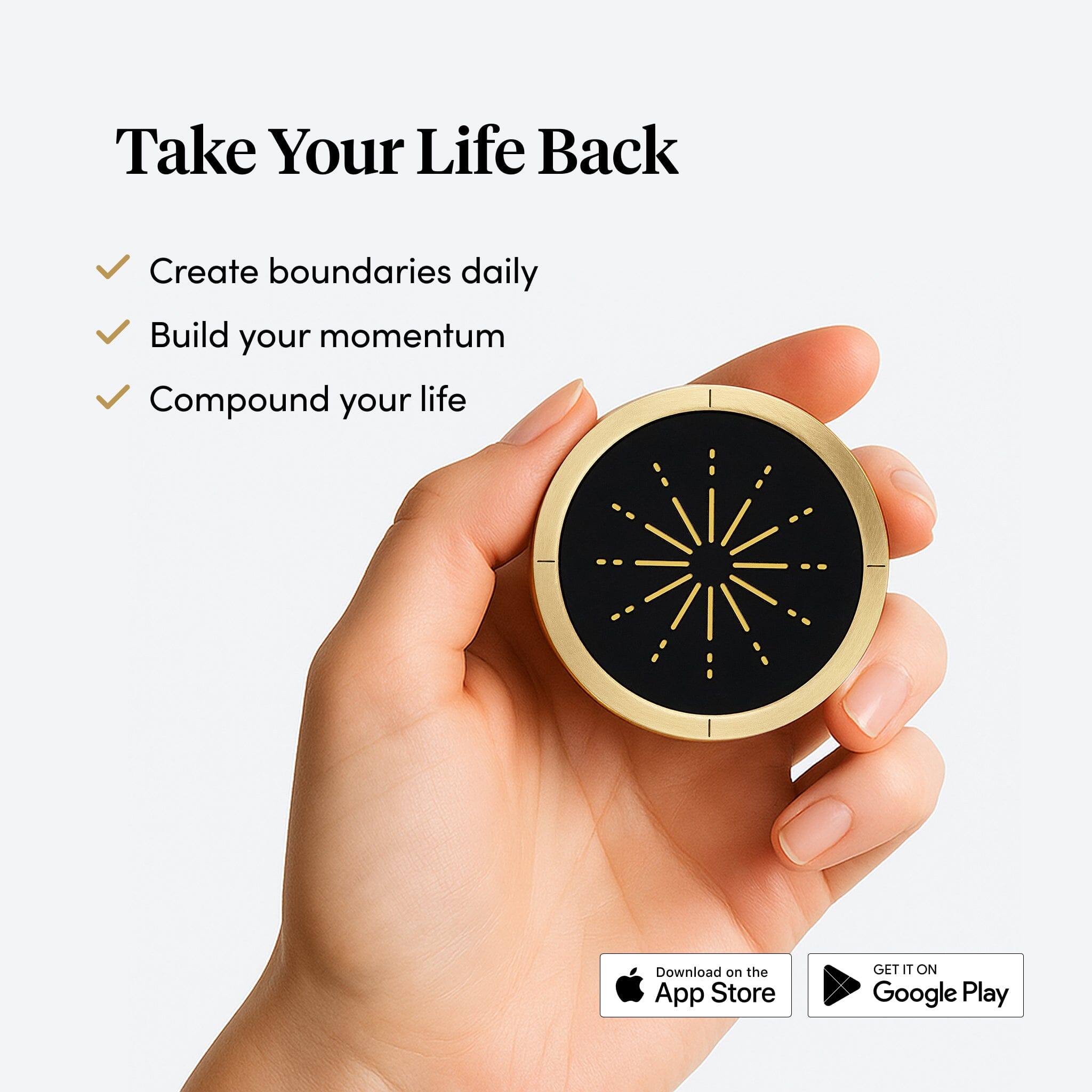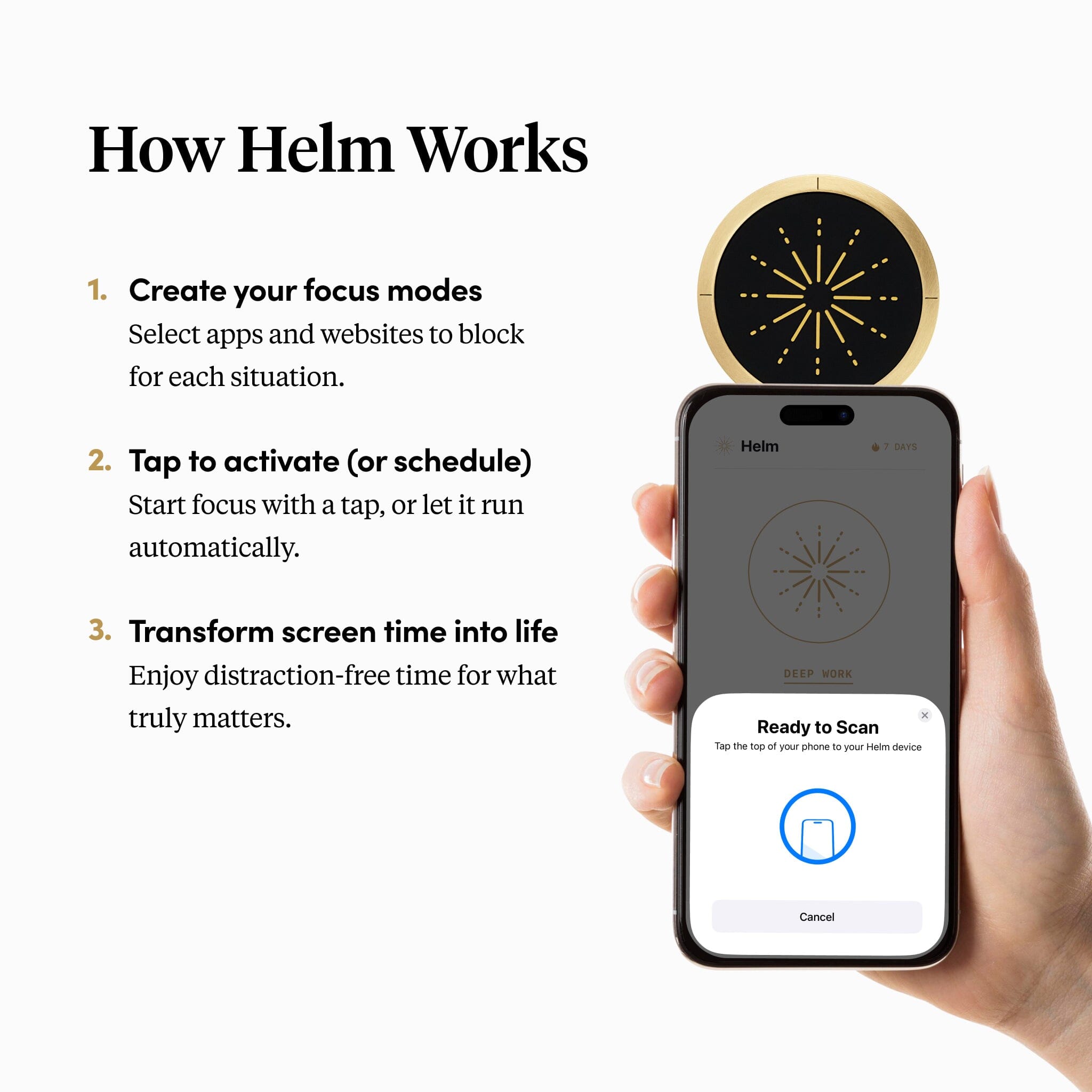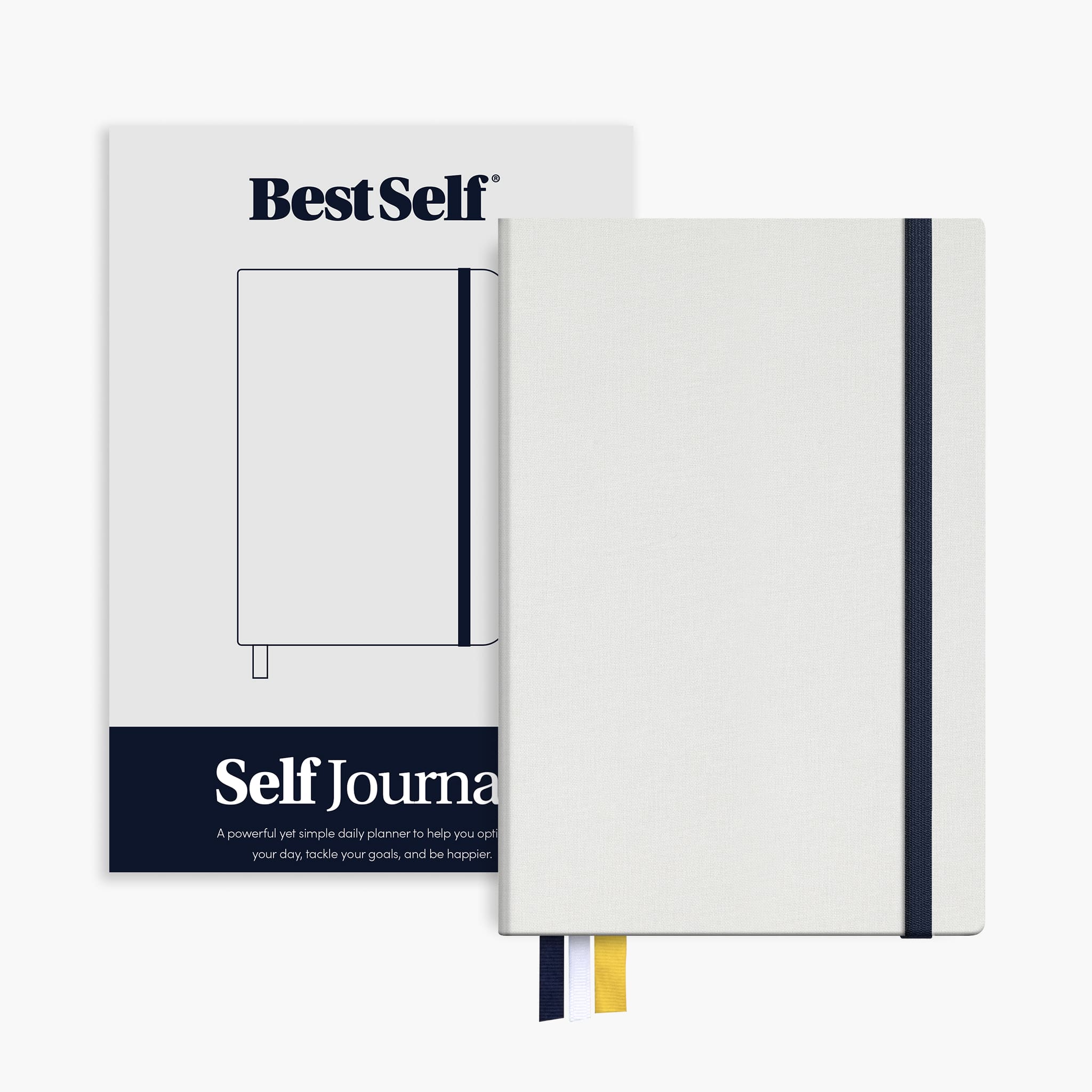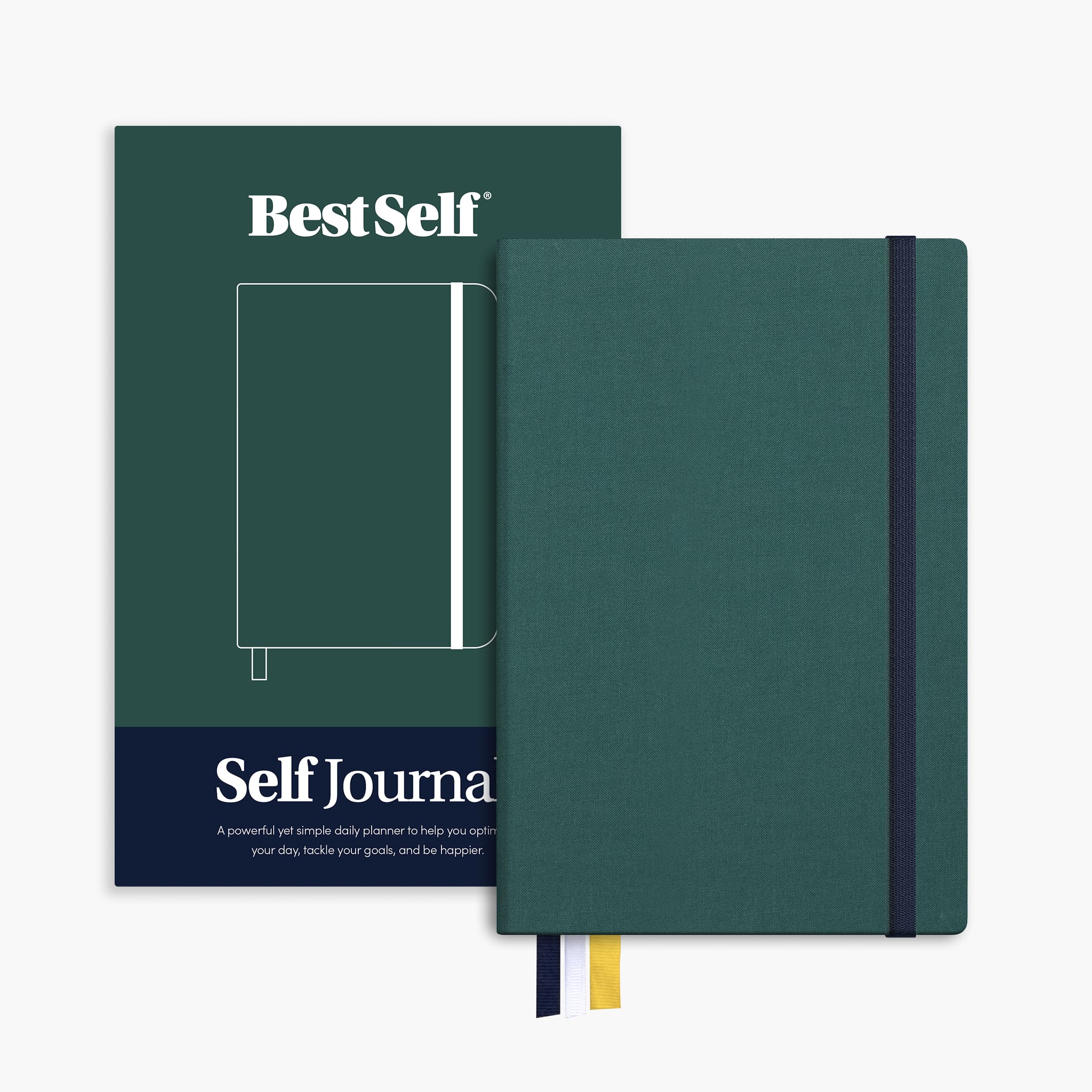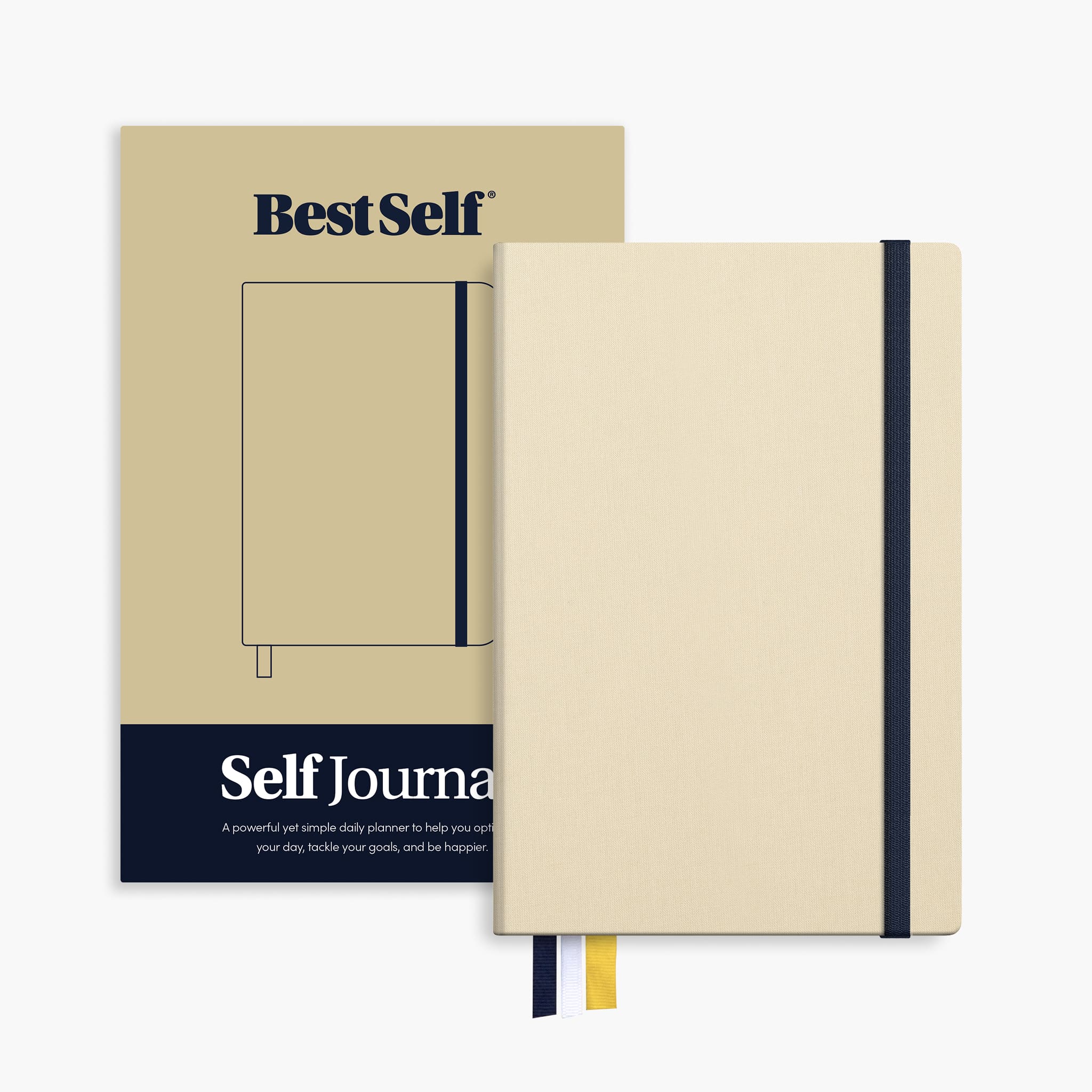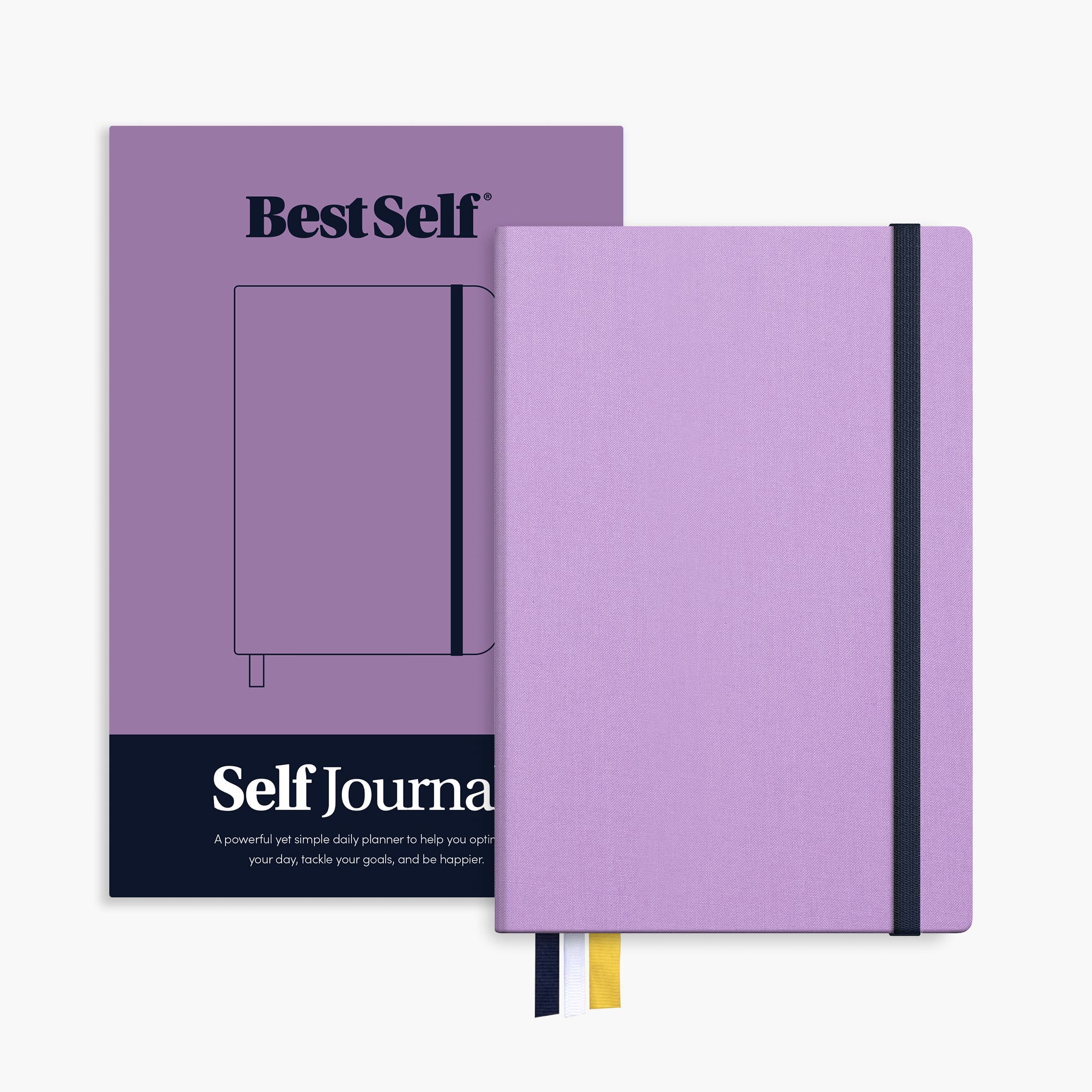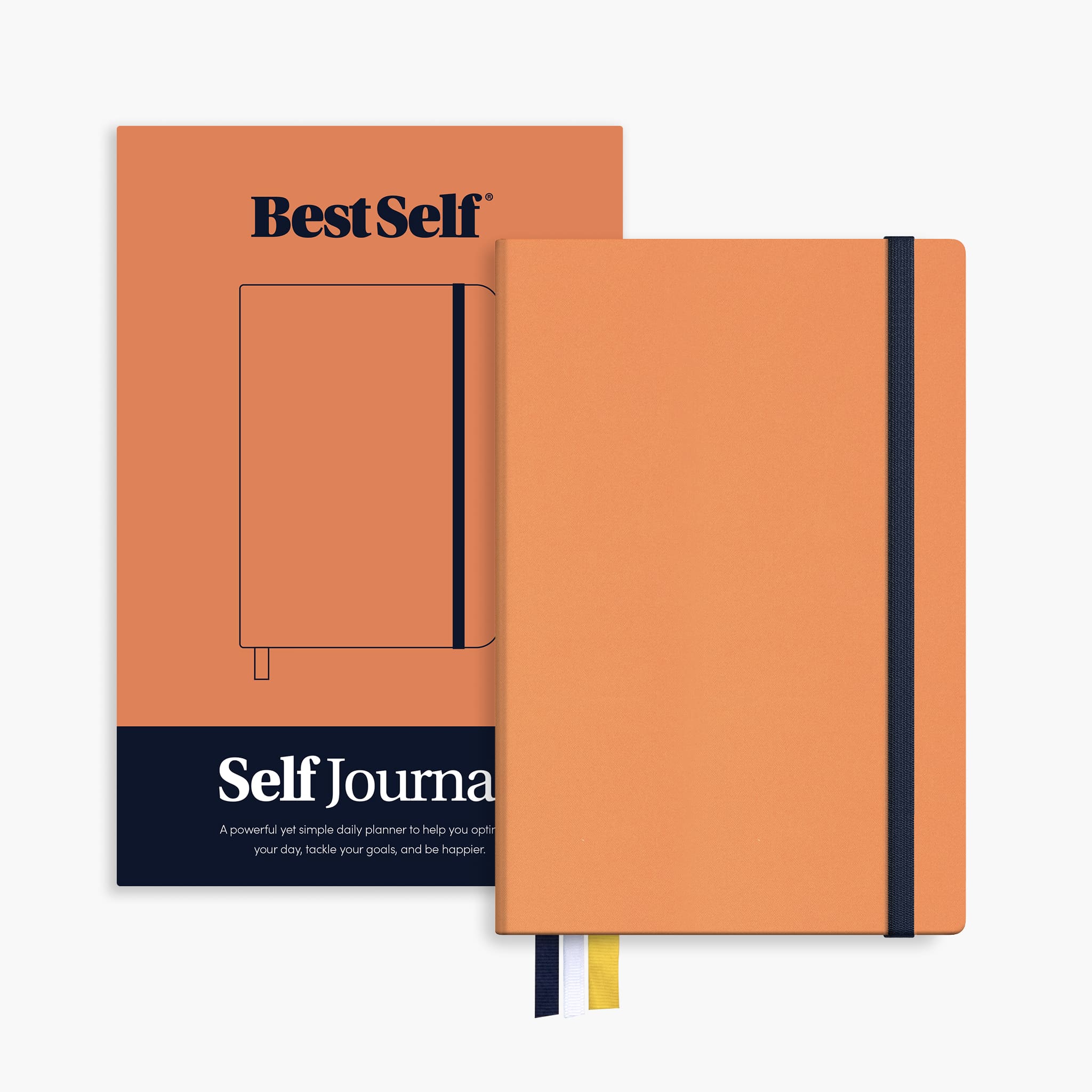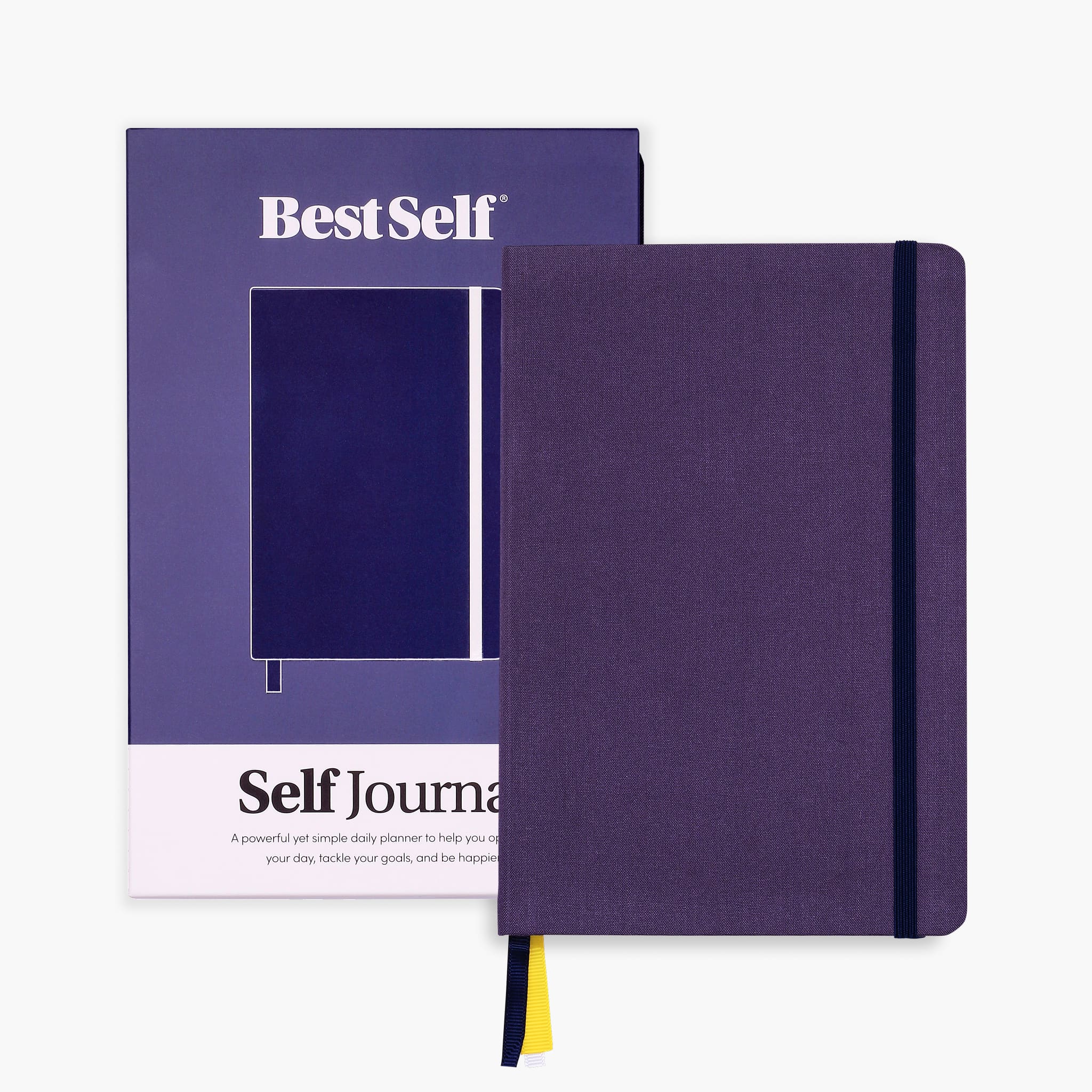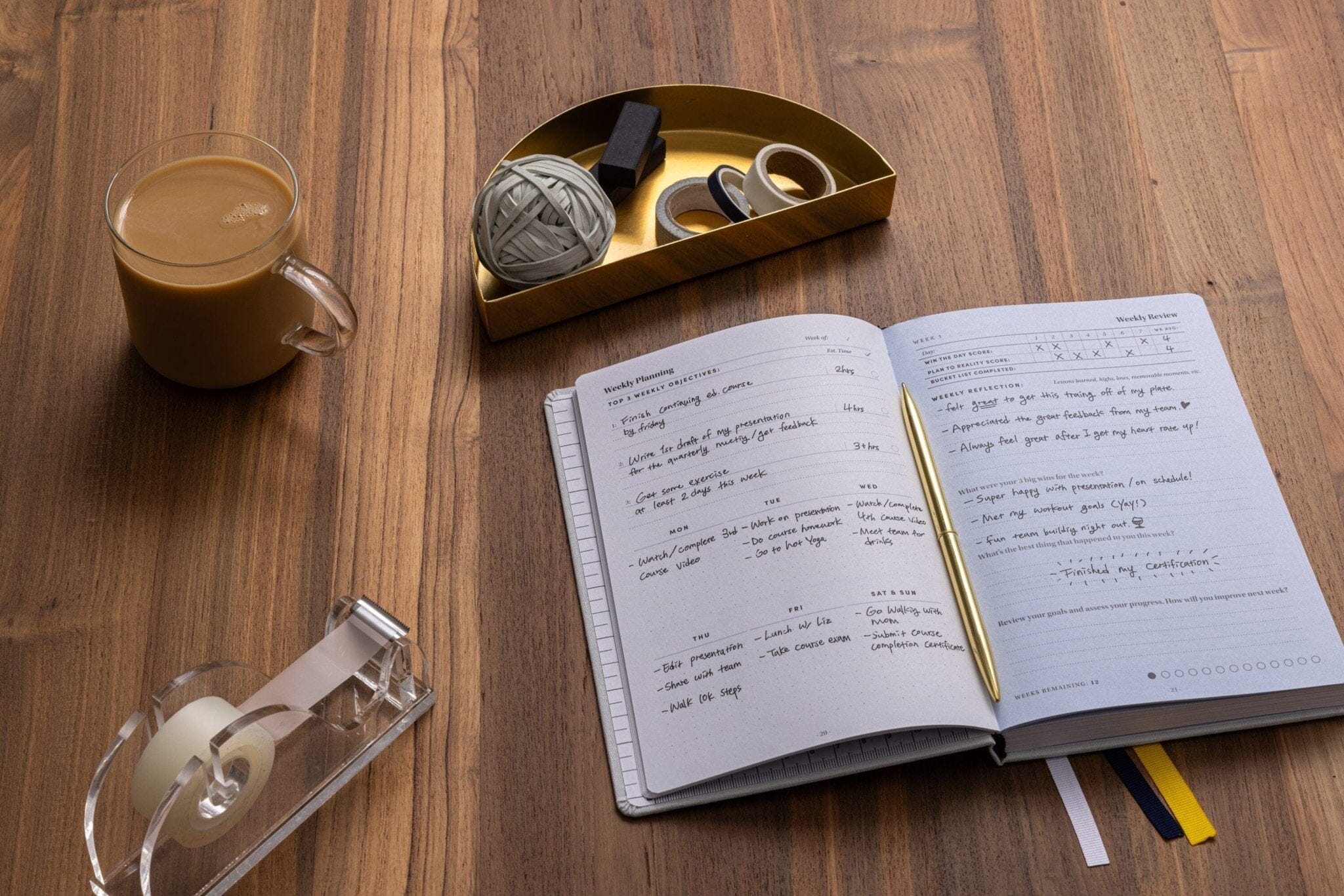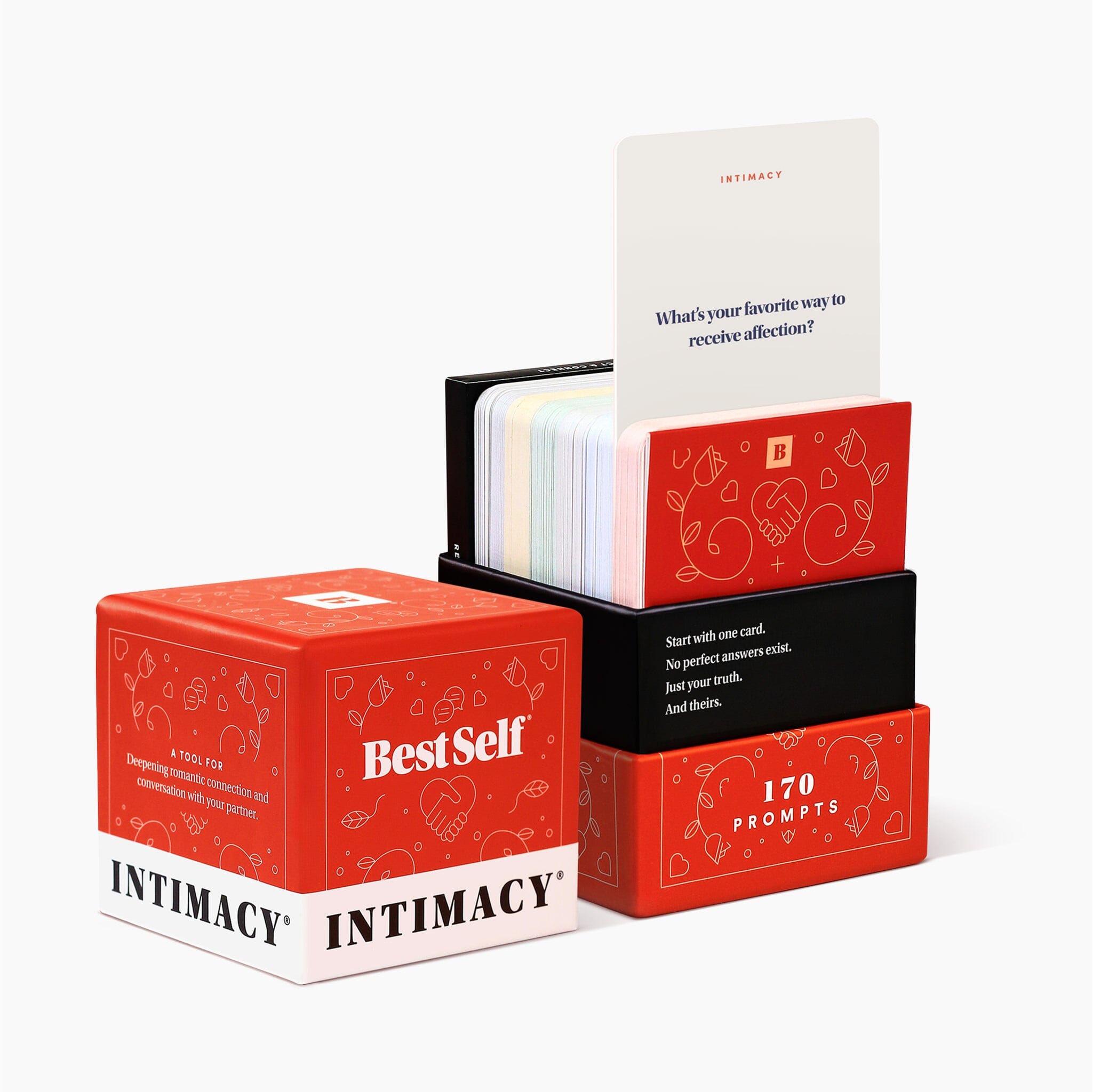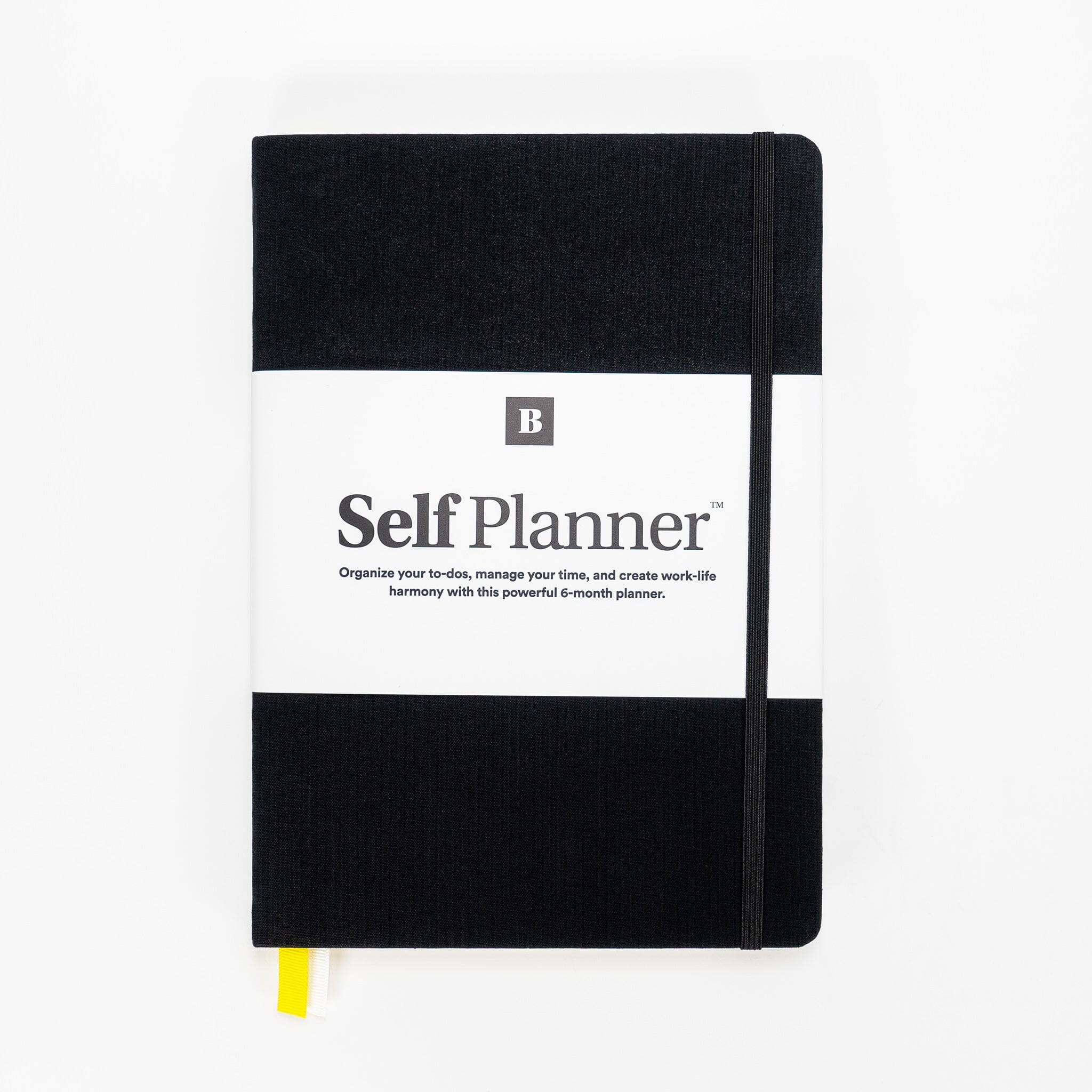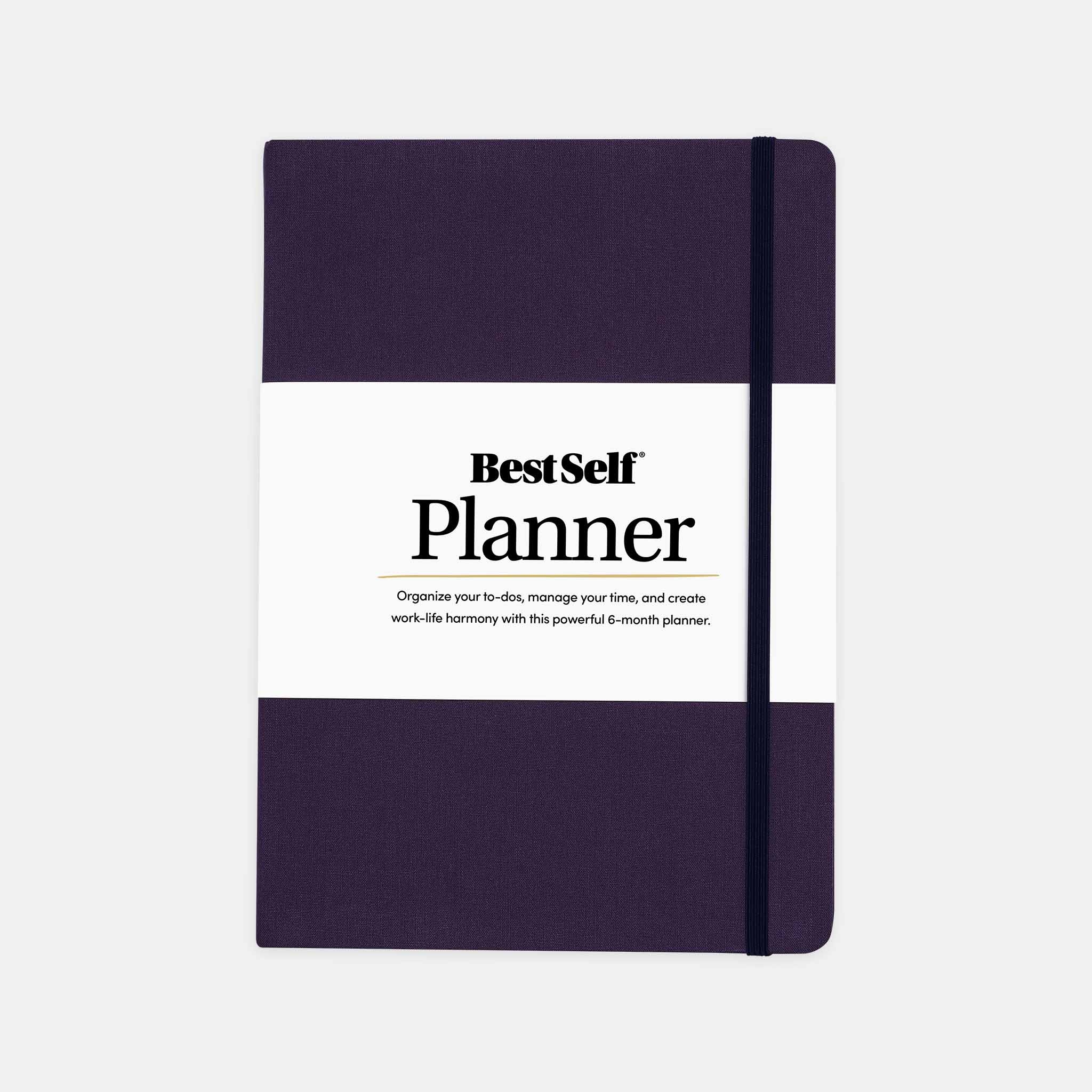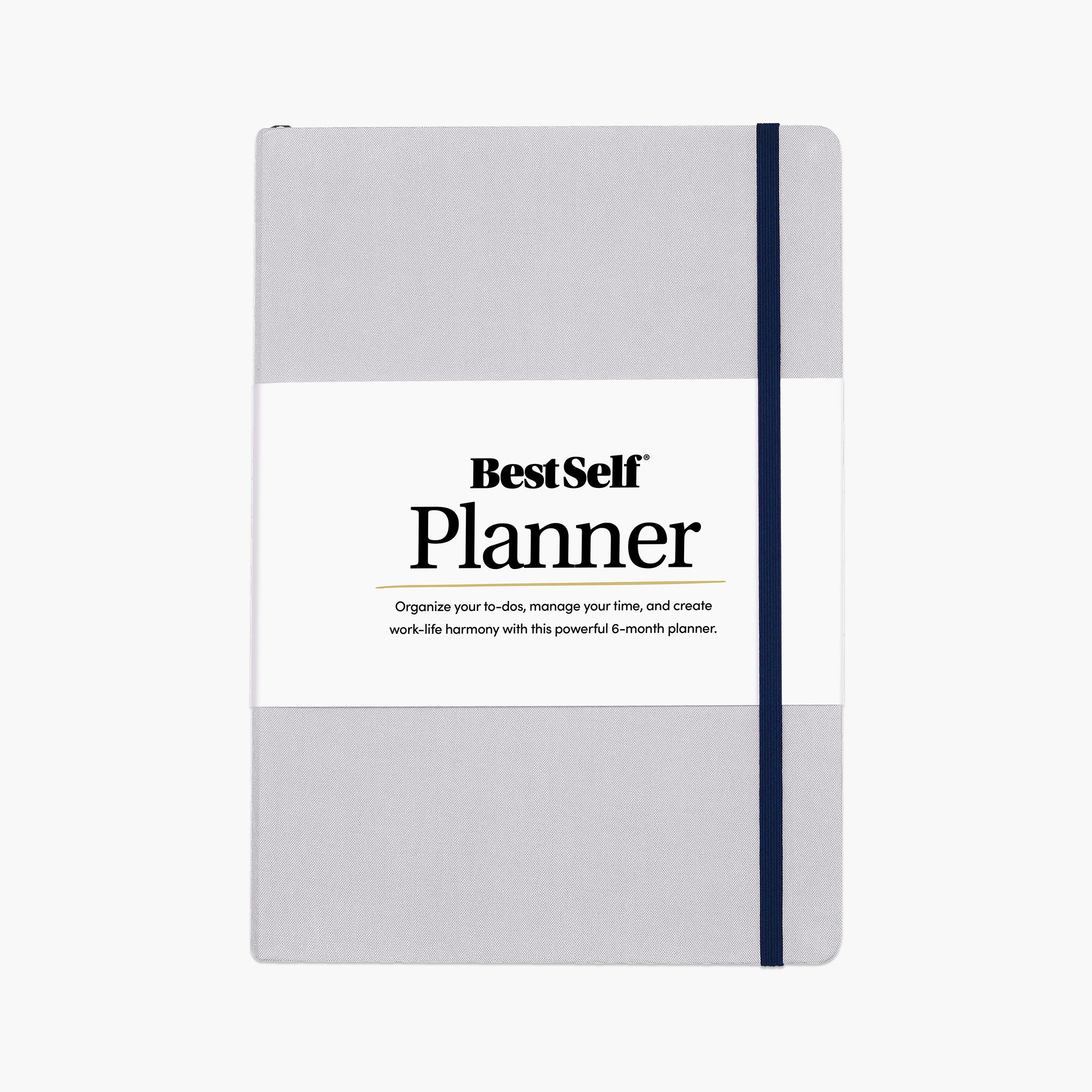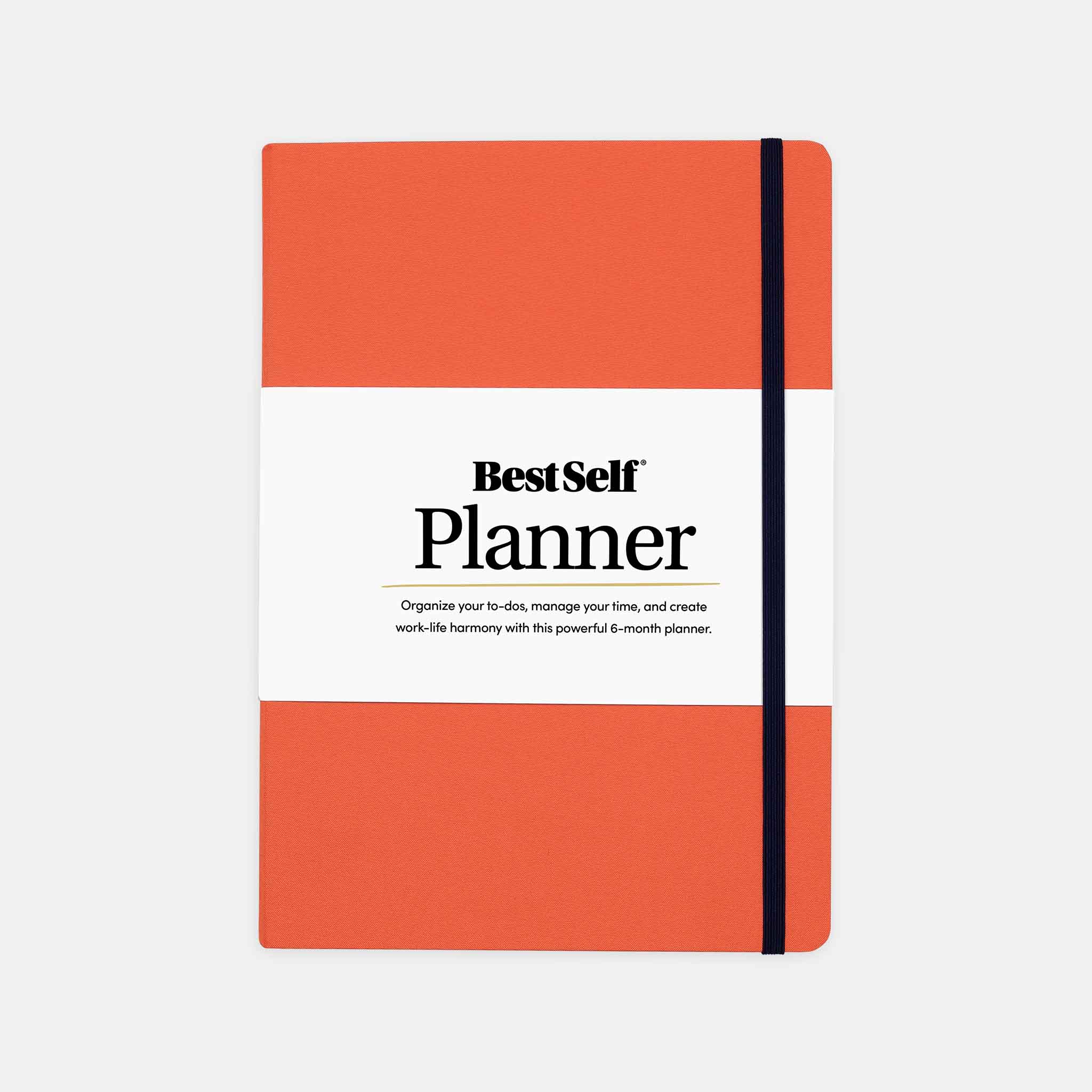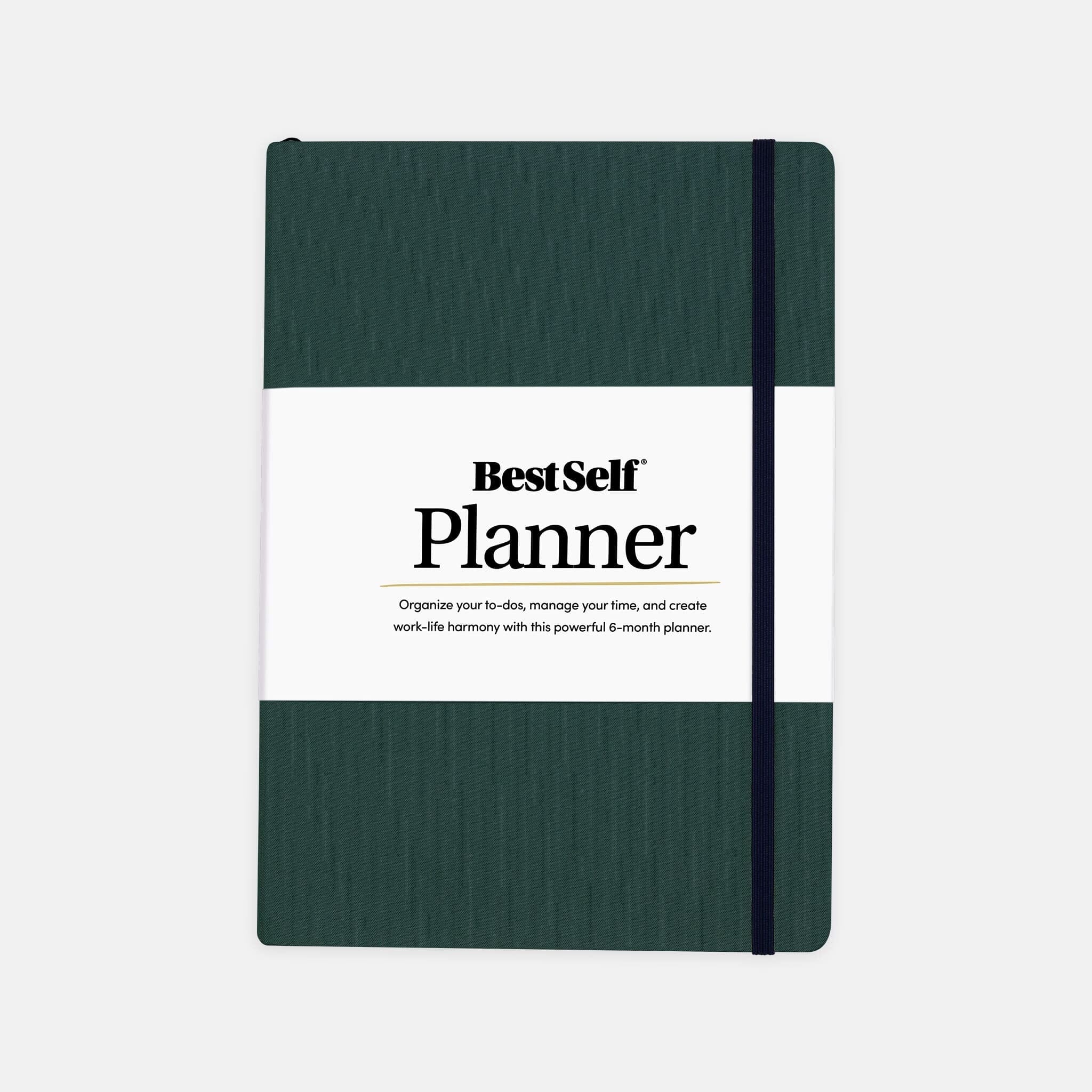A paper-based organizer planner is a powerful and proven way to jumpstart your productivity and performance. Free of the distractions that plague apps and online tools, you can maintain your focus and get more done.
In recent years, the paper planner market has grown. Nowadays you have a lot of choices.
But which structure is best?
What should you track and think about on a daily basis to think bigger, achieve more, and enjoy today?
Here are eight sections that are essential for your success.
1. Somewhere to write down your goal
On a daily basis, you’ll be faced with countless distractions and temptations.
You do have enough time to do it all - but only if you’re able to divert your focus and attention to what really matters.
Writing out your goal every day serves a number of purposes:
Firstly, it reminds you of the direction you’re headed. As a result, you can focus on and prioritize those tasks that are going to keep the needle moving forward.
Secondly, when you write out your goal, you tell your Reticular Activating System (RAS) what to look out for. Your conscious brain can’t physically cope with the amount of information it receives every day. To prevent overload, you have to filter stuff out. The RAS is there to identify and draw your attention to the things that matter to you most. Keep your goal front of mind, and don’t be surprised if perfect opportunities fall into your lap - because you’re proactively looking for them.
2. Today’s targets
Take a quick look at your master to-do list.
If you’re anything like me, then you’ll have a long list of things you need to do (and want to do). Worst of all, there’s absolutely zero chance you’ll get it all done today! If you stay focused on what you can’t do, you’ll ramp up the overwhelm and reduce your output.
Instead, pin down up to THREE tasks that - if you do nothing else - will make the day a win for you.
Pick your highest priority to-dos or activities, get them scheduled, and make sure they happen.
End the day with these three wins under your belt and you’ll feel accomplished - even if some stuff has been left untouched. It’s a high-performance strategy that the right organizer planner will help make permanent.
3. Space for reflection
No high-achiever gets through life without making mistakes. When you’re thinking big and thriving in discomfort, mistakes are inevitable. It’s how you grow into your potential.
Mistakes are never real mistakes if you learn from them. But they can become a problem if you continue to make the same mistakes over and over.
That’s why the best organizer planners have space for daily and weekly reflection.
At the end of every day and every week, look back and write down what you learned. Maybe it was a new skill or an insight about yourself. Perhaps you noticed a habit that’s holding you back or a new strategy that’s getting results.
Capture your lessons learned and you’re less likely to lose them. Better still, you empower yourself to use these insights to help you grow and achieve your goals quicker.
4. Prompts to captures your wins
If you’re reading this, there’s a good chance you’re your own worst enemy! You want to be successful and that means you have big expectations of yourself. It’s a common trait amongst high achievers.
It’s also one of the problems with your goals… They’re a constant reminder of how far you’ve yet to travel!
A positive mindset is an asset that will empower to succeed. As Henry Ford famously said, “Whether you think you can or you think you can’t, you’re right.”
Writing down your wins on a daily and weekly basis (even the super small ones), will give you the motivation and reference points you need to keep going. Create a catalogue of successes and on those days when it all feels too much, you can quickly remind yourself just how awesome you are.
5. A gratitude practice
When I first started using an organizer planner, I didn’t really get why gratitude was such a fundamental part of a high-achiever’s day.
I’d always seen gratitude as a practice that showed you had good manners - like saying please and thank you to people.
But it turns out gratitude is so much more than that.
Start your day by proactively feeling grateful for the things you already have in your life and you realize just how abundant you really are. When you feel successful and abundant in the moment, somehow it’s easier to take the next steps towards your goal.
In the same way that you shouldn’t only acknowledge big wins, take note of the small things. When you look back over your life, it’s often the little things that mattered most.
By all means, write down that you’re grateful for your highest ever month or the new client you secured. At the same time, feel grateful for the wind on your cheeks and your best friend’s smile.
Bookend your day with gratitude and it will create a difference you can feel.
6. A daily timeline
The most productive people budget their time in the same way a wealthy person budgets money.
What gets measured gets utilized well - so make sure your organizer planner allows you to break down your day into 30-minute chunks.
Here’s what most people get wrong…
They write out their daily to-do list, but have no idea how long each task should take to complete. Instead, they simply work through their list - then wonder why so much is left undone by the end of the day (sound familiar?)
There’s a reason this happens:
A daily timeline allows you to map tasks to specific time slots.
With a fixed time window for every to-do, you’re less likely to procrastinate (deadlines are good for that!) You can also plan a more realistic day. Rather than adding stuff to your list that’s never going to happen, you can set yourself up for a win.
One more thing…
30-minute time slots work best because they allow you to chunk your day into bite-sized pieces. Also, 30 minutes equals one Pomodoro too!
7. Habit tracker
“Depending on what they are, our habits will either make us or break us. We become what we repeatedly do.” ―Sean Covey
You can’t sprint your way through a marathon. Instead, you have to pace yourself. It’s the same with your goals. Success doesn’t strike like a bolt of lightning and ‘overnight success’ is usually the result of a lot of hard work behind the scenes.
Goals are a long-haul game and the quickest way to win is to develop ‘good’ habits.
Take consistent daily action towards your goal and you have more chance of winning than a series of frantic sprints every now and then.
What habits will help you cross the finish line?
Whatever those daily actions are for you, you’re more likely to stick at them if you monitor your progress.
So check your organizer planner has a place to track your habits. Then get tracking!
Mark off every day you succeed until you create a streak. Eventually, you’ll reach the point where it’s more painful to break the chain than it is to keep going.
8. Space to plan your work AND your life
The right goals will help you transform your life.
But success can be cut short if you don’t have work-life harmony.
It’s no good building a successful business if it causes your relationships to fail. It’s no good working all hours on your goals if your health suffers to the point where you can’t enjoy your achievements.
Bear in mind that what gets planned gets done.
So pick an organizer planner that allows you to plan your life as well as your work. Focusing on to-dos alone may keep the needle moving, but don’t forget to enjoy today. This means planning in your workouts, making time for family, and scheduling time to read or run (or whatever makes you happy).
Use your planner to plan it all - and you might just have it all as a result.
The original organizer planner
When you have goals to hit and a better life to create, you need to get organized.
You need to plan your day, nurture positivity, make time for priorities - and free up time for yourself.
The Self Journal provides you with the monthly, weekly, and daily structure you need to become your best self.
Perfect for setting your goals and masterminding your plan, this organizer planner will help you stay on track - so you can become the person you always knew you could be.
Inside the Self Journal, you’ll discover space for:
- Writing out your goal
- Prioritizing your workload
- Reflecting on what you’ve learned
- Tracking your wins
- Bookending your day with gratitude
- Planning your day in 30-minute chunks
- Tracking your habits
- And planning for work-life harmony
In other words, the Self Journal contains the structure you need to think bigger, achieve more, and enjoy today. Get started with yours today.
